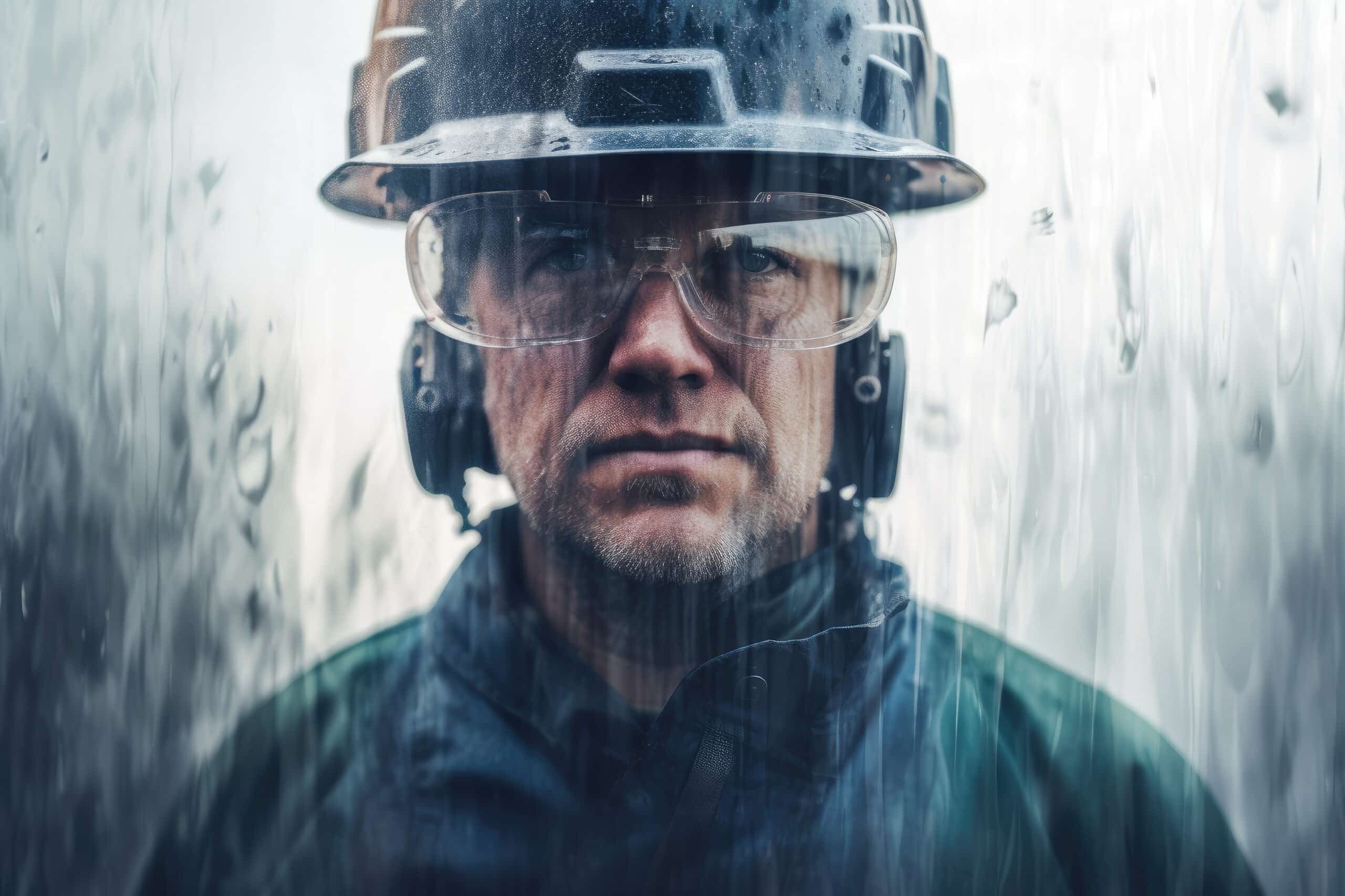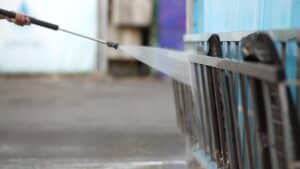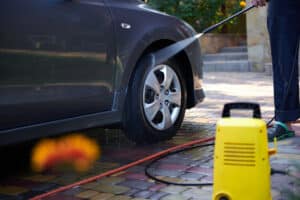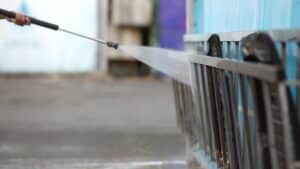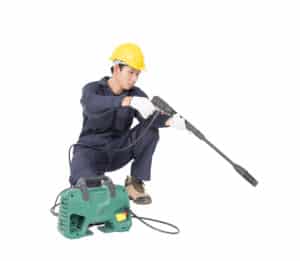What Safety Gear Should I Wear When Using a Pressure Washer?
Key Takeaways
- Eye protection is crucial when using a pressure washer. Safety glasses or goggles should be worn to protect the eyes from flying debris or chemicals.
- Proper foot protection is essential when using a pressure washer. Closed-toe shoes or boots with slip-resistant soles should be worn to prevent injuries or accidents.
- Hand protection is necessary when operating a pressure washer. Protective gloves made of neoprene or nitrile should be worn to protect against chemicals, hot water, and high-pressure spray.
When it comes to using a pressure washer, safety should always be a top priority. The powerful force and high-pressure spray of a pressure washer can pose various hazards if not used correctly. To ensure your safety, it is essential to wear the appropriate safety gear. Let’s explore the recommended safety gear for using a pressure washer.
1. Eye Protection
Protecting your eyes is crucial when using a pressure washer. The high-pressure water spray can cause debris, dirt, or chemicals to fly up and potentially injure your eyes. It is highly recommended to wear safety glasses or goggles to shield your eyes from any potential hazards. Safety glasses should be shatterproof and wrap around the sides of your eyes for maximum protection.
2. Foot Protection
Since pressure washers involve handling heavy equipment and potentially dealing with slippery surfaces, it is essential to wear proper foot protection. Closed-toe shoes or boots are recommended to protect your feet from any injuries or accidents. It is advisable to choose shoes with slip-resistant soles to prevent any slips or falls.
3. Hand Protection
Your hands can be exposed to various risks when operating a pressure washer, including chemicals, hot water, or high-pressure spray. Wearing protective gloves made of neoprene or nitrile can provide the necessary barrier to protect your hands from any potential harm. These gloves provide a good grip and are resistant to chemicals and water.
4. Ear Protection
If you are using a gas-powered pressure washer, it can generate significant noise levels. Prolonged exposure to loud noise can lead to hearing damage. To protect your ears, it is advisable to wear earmuffs or earplugs. These can help reduce the noise levels and prevent any potential hearing-related issues.
5. Protective Clothing
Wearing the right clothing is essential when using a pressure washer. Long-sleeved shirts and pants made of sturdy materials, such as denim or thick cotton, can protect your skin from any flying debris, chemicals, or accidental high-pressure spray. It is important to avoid loose-fitting clothes that can get caught in the equipment.
6. Respiratory Protection
In certain situations, respiratory protection may be necessary when using a pressure washer. If you are working with chemicals or in a dusty environment, wearing a respirator or dust mask can help filter out any harmful particles and prevent you from inhaling any potentially hazardous substances.
7. Additional Face Protection
For added protection, you may consider wearing a face shield or safety goggles to protect your face from any high-pressure spray or particles. This is especially important when working with surfaces or areas that may produce a significant amount of debris or splashing.
8. Head Protection
In certain situations, such as when working in construction or industrial settings, it may be necessary to wear a hard hat or safety helmet to protect your head from falling objects or potential hazards.
9. Sun Protection
When working outdoors, it is crucial to protect your skin from the harmful effects of the sun. Applying sunscreen and wearing a wide-brimmed hat can help protect your skin from sunburn and reduce the risk of long-term sun damage.
Related Websites:
FAQs:
Q: Why is eye protection crucial when using a pressure washer?
Eye protection is crucial when using a pressure washer because high-pressure water can cause serious eye injuries. Safety goggles or glasses help shield your eyes from debris, chemicals, and water spray, ensuring your eyes stay safe and protected.
Q: What are the different types of safety goggles available?
There are various types of safety goggles available for pressure washer use. Some popular options include wraparound goggles, sealed goggles, and anti-fog goggles. Each type offers different features and levels of protection, so it’s essential to choose ones that fit well and provide adequate coverage.
Q: How can I choose suitable eye protection for pressure washer usage?
When selecting suitable eye protection, consider factors like comfort, fit, and ANSI/ISEA rating. Look for goggles that provide a snug fit, have adjustable straps, and meet the safety standards set by the American National Standards Institute (ANSI). It’s also helpful to read customer reviews and try on different options to find the best fit for your needs.
Q: What is the impact of pressure washer noise on hearing?
The noise generated by pressure washers can be harmful to hearing if proper protection is not worn. Prolonged exposure to loud noise can lead to hearing loss or damage. It is crucial to wear hearing protection, such as earmuffs or earplugs, to minimize the risk of hearing-related issues.
Q: What are the various options for hearing protection?
There are different options available for hearing protection when using a pressure washer. Some common options include earmuffs, earplugs, and noise-canceling headphones. Each type offers varying levels of noise reduction, so choose the one that fits comfortably and provides appropriate noise attenuation for your specific needs.
Q: What factors should I consider when selecting appropriate hearing protection?
When selecting appropriate hearing protection, consider factors like noise reduction rating (NRR), comfort, durability, and compatibility with other safety gear. Look for hearing protection with a high NRR, adjustable headbands, and materials that offer comfort and durability. It’s also essential to ensure that the hearing protection you choose doesn’t interfere with other safety equipment, such as safety goggles or respirators.
Q: What potential foot injuries can be caused by pressure washer accidents?
Pressure washer accidents can cause potential foot injuries, including cuts, lacerations, slips, or falls. The high-pressure water spray, chemicals, and slippery surfaces can be hazardous to unprotected feet. Wearing appropriate safety footwear helps prevent these injuries and provides stability and protection.
Q: What types of safety footwear are suitable for pressure washer use?
Safety footwear suitable for pressure washer use includes steel-toe boots, rubber boots, or non-slip shoes. These types of footwear provide protection against impacts, chemical spills, and offer slip-resistant features. Choosing the right footwear depends on your specific needs and the potential hazards you may encounter.
Q: What key features should I look for in protective footwear for pressure washer use?
When selecting protective footwear for pressure washer use, look for features like slip resistance, waterproof materials, toe protection, and ankle support. Slip-resistant soles help prevent accidents on wet surfaces, while waterproof materials keep your feet dry. Toe protection, such as steel or composite toe caps, safeguards against impacts. Additionally, ankle support reduces the risk of sprains or strains during operation.
Q: Why is it important to protect hands while operating a pressure washer?
Protecting hands while operating a pressure washer is essential to prevent injuries like cuts, abrasions, chemical exposure, or thermal burns. Wearing suitable gloves provides a protective barrier between your hands and potential hazards, ensuring your hands remain safe and unharmed.
Q: What are the different types of gloves suitable for pressure washer use?
There are various types of gloves suitable for pressure washer use, including rubber gloves, nitrile gloves, or neoprene gloves. Rubber gloves offer chemical resistance, nitrile gloves provide excellent puncture resistance, and neoprene gloves offer both chemical and heat resistance. Choose gloves that match the specific hazards you may encounter while operating a pressure washer.
Q: What factors should I consider when selecting suitable hand protection?
When selecting suitable hand protection for pressure washer use, consider factors like grip, dexterity, material durability, and resistance to chemicals or heat. Look for gloves with textured surfaces for a better grip, materials that allow flexibility and dexterity, and resistance to chemicals or heat based on the tasks you will be performing. It’s crucial to choose gloves that provide the necessary protection without compromising your ability to operate the pressure washer effectively.
Q: Why is proper clothing significant when using a pressure washer?
Proper clothing is significant when using a pressure washer because it helps protect your body from potential injuries and exposure to chemicals or debris. Wearing appropriate clothing provides an added layer of safety and reduces the risk of accidents or harm while operating the pressure washer.
Q: What types of clothing provide added safety when using a pressure washer?
Clothing that provides added safety when using a pressure washer includes long-sleeved shirts, long pants or coveralls, and waterproof or chemical-resistant aprons. These types of clothing items help shield your skin from chemical splashes, debris, or accidental contact with high-pressure water, ensuring optimal safety during operation.
Q: What tips can I follow to choose appropriate clothing for pressure washer operations?
When choosing appropriate clothing for pressure washer operations, consider selecting garments that fit well, are made of durable materials, and provide adequate coverage. Opt for moisture-wicking fabrics that keep you comfortable during prolonged use. Additionally, choose clothing that is not loose or baggy, as it may get caught in the equipment and pose a safety risk.
Q: Why is it important to prioritize personal safety when operating a pressure washer?
It is important to prioritize personal safety when operating a pressure washer to prevent accidents, injuries, and long-term health effects. By utilizing appropriate safety gear, such as eye protection, hearing protection, protective footwear, gloves, and proper clothing, you significantly reduce the risk of harm and ensure a safe working environment.

